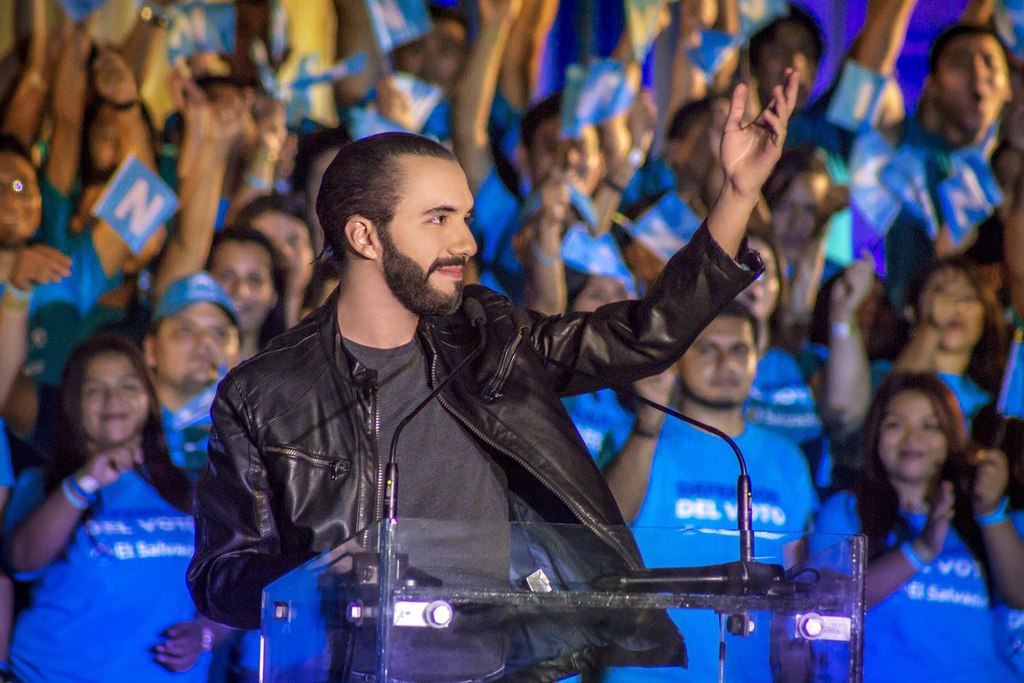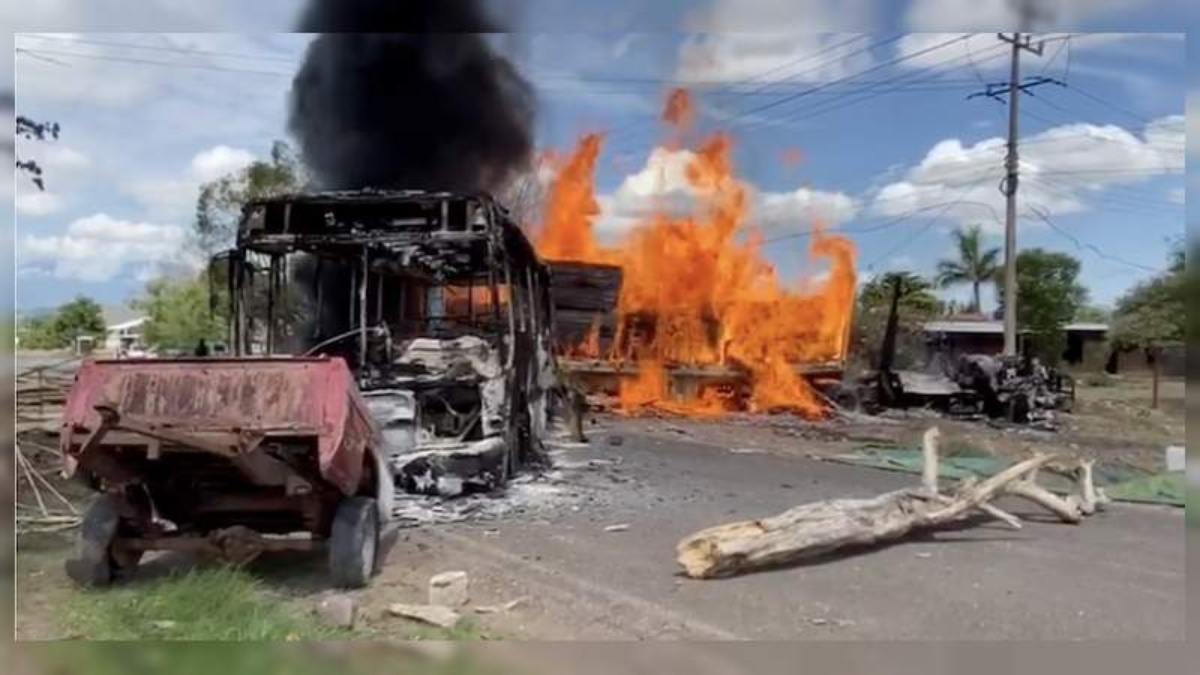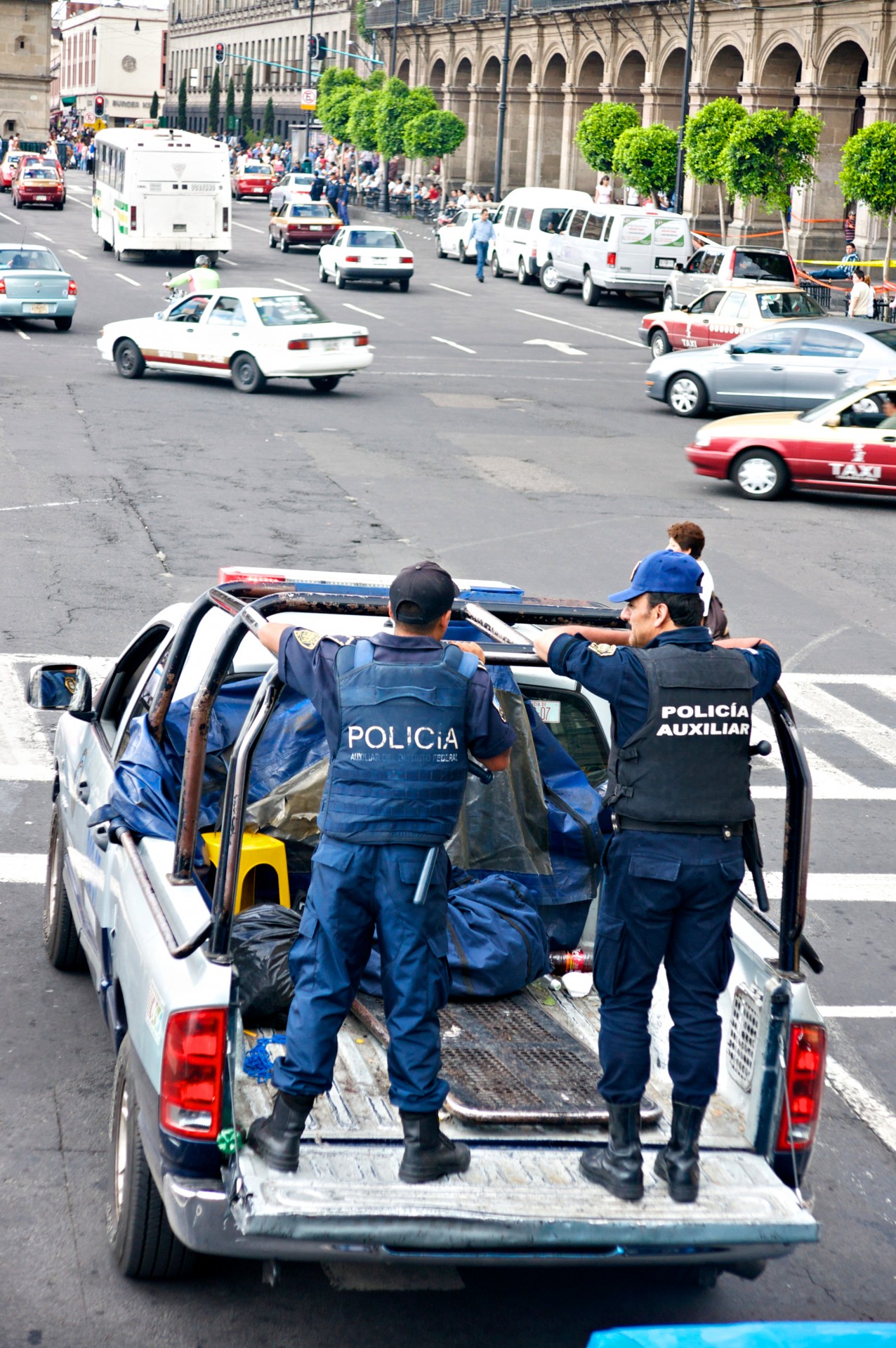
Salvadoran President Nayib Bukele delivers a speech on security policy.
“The state of exception suspends various constitutional guarantees. It allows arbitrary arrests without a warrant, interrupts freedom of association, the right to legal defense, and extends the term of administrative detention to 15 days (when it is normally 72 hours). Under this special regime, the government brought thousands of soldiers and police onto the streets to carry out mass captures. Bukele arrested more than 65,000 suspected gang members, according to official figures, although multiple organizations estimate that thousands could be innocent.”
As part of an effort to fight the notorious MS-13 and Barrio 18 gangs, Salvadoran President Nayib Bukele declared a special state of emergency suspending habeas corpus and incarcerating fully 2 percent of the country’s adult population.[i] Recently, Bukele’s state of emergency turned one year old, reports France24, the public-private media partnership associated with the French state. The outlet details how popular the plan is among Salvadorans, reporting they appear willing to accept curtailment of rights in favor of greater security from the country’s gangs, suggesting El Salvador’s state of emergency is unlikely to end anytime soon.
Throughout his tenure, Bukele has shifted his strategy for fighting transnational organized crime, reports El Faro, the Salvadoran investigative outlet often at odds with the president. At the beginning of his presidency, El Faro broke the news that Bukele had negotiated a secret pact with the country’s gangs, seeking to lower the homicide rate and earn their political support in exchange for turning a blind eye to drug trafficking and other activities. After a spate of murders in March 2022, however, Bukele terminated the informal agreement and reversed course drastically. The media outlet reports a decline in homicides in many neighborhoods throughout the country. The perceived success fo Bukele’s crime-fighting strategy has inspired so-called “Plan Bukeles”—as multiple leaders repeat calls to imitate El Salvador’s internal security plan.[ii] Fighting transnational criminal organizations by deprioritizing human rights and allowing presidents to accrete greater power during states of emergency also risks democratic backsliding and consolidating authoritarian political projects.
Source:
“Qué ha pasado en El Salvador tras un año bajo el régimen de excepción (What has happened in El Salvador after a year under the emergency regime?),” France24 (the public-private media partnership associated with the French state), 28 March 2023. https://www.france24.com/es/am%C3%A9rica-latina/20230327-qu%C3%A9-ha-pasado-en-el-salvador-tras-un-a%C3%B1o-bajo-el-r%C3%A9gimen-de-excepci%C3%B3n
After a year of emergency regime, El Salvador has not come out of its ‘war against gangs.’ The state of exception was originally approved at the end of March 2022 and was implemented by President Nayib Bukele to fight gang violence in the country…Since then, it has been renewed twelve times by the Legislative Assembly of El Salvador…a number that contrasts with what is permitted constitutionally…The Constitution of the Republic establishes very clearly that the emergency regime can only be extended once, that is, for 30 days.
“El año en el que la excepción se convirtió en la norma (The year the exception became the norm),” El Faro (the Salvadoran investigative outlet often at odds with the president), 23 December 2022. https://elfaro.net/es/202212/el_salvador/26652/lo-mejor-y-lo-mas-leido-en-este-ano-bajo-regimen.htm Bukele found his political crusade in the state of emergency in the face of the announcement that he would make six months later, his desire to run for re-election in 2024, violating several articles of the Constitution. Since then, brandishing his state of emergency, Bukele has presented himself as the strongman who will put an end to the criminal groups that have been bleeding and extorting Salvadorans for decades. Since March 2022, more than 60,000 Salvadorans have been detained, doubling the country’s prison population in nine months.
Notes:
[i] For more background on Bukele’s security plan and its impact on the country, and especially its democracy, see: “Democracy Dies Under Mano Dura: Anti-Crime Strategies in the Northern Triangle,” Center for Strategic and International Studies, 12 April 2023. https://www.csis.org/analysis/democracy-dies-under-mano-dura-anti-crime-strategies-northern-triangle
[ii] For more information on the popularity of “Plan Bukele” regionwide, see: “Nayib Bukele’s Growing List of Latin American Admirers,” Americas Quarterly, 16 February 2023. https://www.americasquarterly.org/article/nayib-bukeles-growing-list-of-latin-american-admirers/
Image Information:
Image: Salvadoran President Nayib Bukele delivers a speech on security policy.
Source: https://commons.wikimedia.org/wiki/File:Discurso_de_Nayib_Bukele.jpg
Attribution: Wikimedia, CC-BY-SA 4.0


